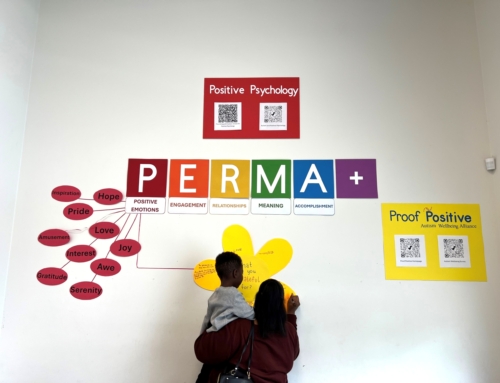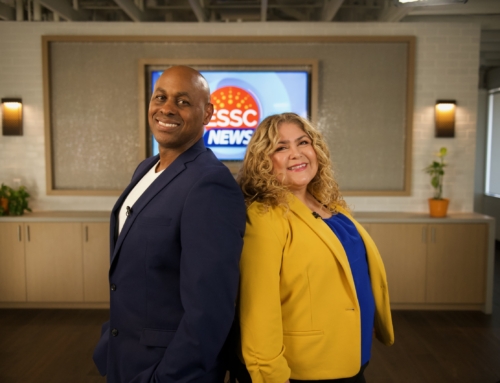Easterseals Autism Ambassador Aaron Likens has been doing a lot of thinking about the impact COVID-19 is having on those, like himself, with autism. His blog post for April’s Autism Acceptance Month is written to explain the additional challenges those with autism are experiencing during this time of crisis.
Routine
 Routine is one of the most important things in my life. Although I was not diagnosed with autism (then called Asperger’s Syndrome) until I was 20-years old, there were signs and behaviors long before. The strong need for a “routine” was definitely one of the signs on the list.
Routine is one of the most important things in my life. Although I was not diagnosed with autism (then called Asperger’s Syndrome) until I was 20-years old, there were signs and behaviors long before. The strong need for a “routine” was definitely one of the signs on the list.
When I was younger, if there were any changes to my typical routine I would repeatedly ask my dad, “What’s next?” I always had to know what was coming up and I still do, as knowing provides so much comfort.
Changes
The spread of COVID-19 has caused unprecedented and monumental changes in the lives of all Americans. It has disrupted everyone’s routine and no one knows the exact answer to the question “what’s next?” For those on the autism spectrum, changes like this cause anxiety well beyond the anxiety everyone else is feeling. Like typical anxiety magnified by a power of 100!
One major change for kids is that school buildings are suddenly closed and the return date for in-person instruction is unknown. Even though I despised going to school, a major schedule change – a disruption to my routine – would have been worse.
I know that my 12-year-old self would have been in an extremely bad place if my typical school routine, a major source of stability and communication, was unexpectedly changed into having lessons at home.
Students are accustomed to spring break, and the extended summer break, but this break because of COVID-19 is completely unpredictable. Another nightmare for someone who requires the routine that the daily school day brings.
Fear
Unfortunately, for all of us, the impact of COVID-19 is impossible to avoid.
I’m 37 years old and experiencing a level of anxiety that I haven’t felt before. On the one hand, I’d love for a person to utter some magic words to ease the fear (which I’m sure is true for most anyone, on the spectrum or not). On the other hand, I am thankful that those I know have not tried to do so.
Attempts at minimizing fears for those of us on the spectrum are likely just a one-way ticket to further anxiety and frustration. It is hard enough for me to verbalize something once. If I know or even think that speaking about my feelings or fears will draw a flippant “oh, don’t worry” let alone a harsh or critical response, I’m simply not going to say anything! I’ll swallow my fear and live with the anxiety.
Then things can go downhill from there, because no outlet for my emotions leads to a bigger bout of anxiety, which leads to more fear, which… you see where this is going.
Imagination
The worst thing of all, for me, has been the imagination which accompanies being on the spectrum. I laugh when I hear people say, “People on the spectrum can’t have an imagination.” How I sometimes wish that were true.
While I may not have been able to pretend or enjoy imaginative play growing up, I have always been able to play out scenarios in my head. This can sometimes be a gift. Many of the chapters in my book are associated with scenarios that became teaching lessons.
Unfortunately, when the world becomes a shaky place, the imagination makes it infinitely worse. There is a constant processing of cataclysmic “what if” scenarios and I can become overwhelmed with the inability to determine “what’s next?”
Communication
 I wish I could tell everyone, whether a parent, sibling, guardian, or just a friend of a person on the spectrum, exactly how to provide comfort right now, but I do not think there is any one specific way.
I wish I could tell everyone, whether a parent, sibling, guardian, or just a friend of a person on the spectrum, exactly how to provide comfort right now, but I do not think there is any one specific way.
With that said, if you have someone in your household who has autism and is struggling at this time, please know that consistent, patient communication is critical and extremely helpful.
While we may not give an instant response to your words of comfort, know that we are hearing you. Even if our response is contrary to what you are saying, inside we are processing what you are telling us. Just be prepared for repetitive questions as we consider your communication.
I was the master of this and I would ask the same question maybe just 20 minutes (or less) apart and I was always looking for consistency in answers because if I knew my parents said the same thing multiple times then that must be the way it was going to be.
You won’t have the answers to everything… and that’s okay! No one does right now. You won’t be able to say when a favorite sports team will resume play, or when classes may start again, but you can be there in whatever way you can when fear and doubt about the future rolls in like a storm coming off the Rockies, and you are asked, “What’s next?”
Watch the video below to learn more about Aaron Likens.








Leave A Comment